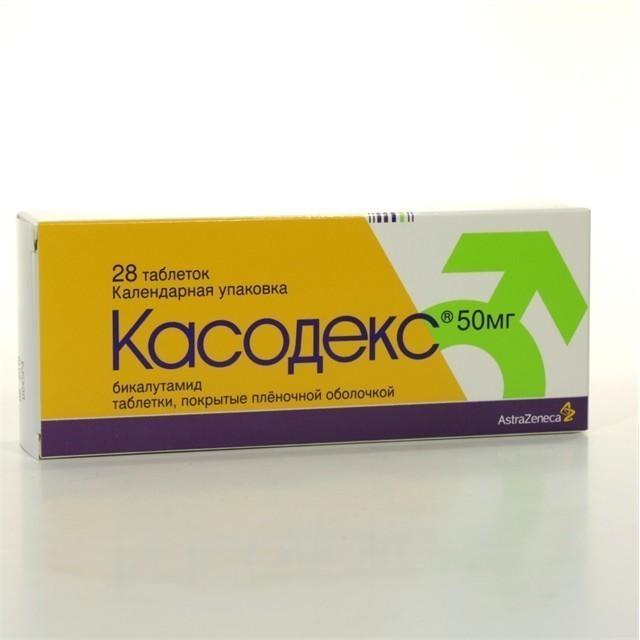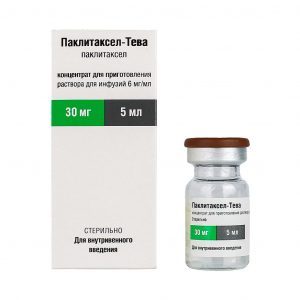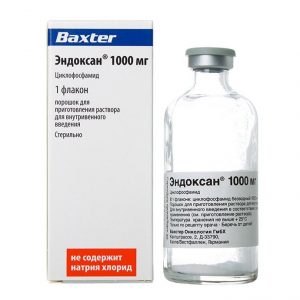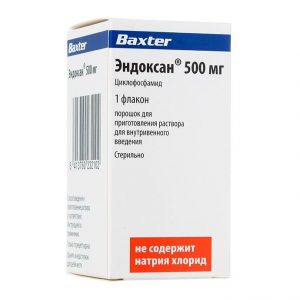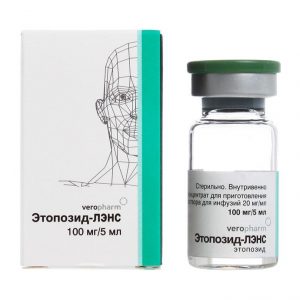Description
Latin name
CASODEX
Release form
film-coated tablets.
Packing
28 pcs
Indications
Common prostate cancer (in combination with a GnRH analog or with surgical castration).
Contraindications
Concomitant use with terfenadine, astemizole, cisapride
Hypersensitivity to bicalutamide and other components of the drug
Casodex is not prescribed for women and children.
Caution: Casodex ® is used in patients with impaired liver function, with lactose intolerance, lactase deficiency and glucose / galactose malabsorption syndrome.
Use during pregnancy and lactation
Casodex ® is contraindicated in women and should not be prescribed to pregnant women or during lactation.
Composition
1 tablet contains:
Active ingredient: bicalutamide 50 mg
Excipients: lactose monohydrate, sodium carboxymethyl starch, povidone, magnesium stearate, purified water (evaporated during production) srdlkromol, titanium dioxide composition: purified water.
Dosage and administration of
Casodex ® is prescribed for adult men (including the elderly) with advanced prostate cancer in combination with an analogue of GnRH or with surgical castration at a dose of 50 mg 1 time / day. Treatment should be started simultaneously with the start of taking GnRH analogue or surgical castration.
Patients with impaired renal function and mild impaired liver function do not require dose adjustment.
Patients with moderate to severe impaired liver function may experience increased cumulation of the drug.
Side effects
Casodex ® is well tolerated by most patients, and only in rare cases it has to be canceled due to side effects caused by it.
The pharmacological effects of Casodex may cause the following side effects.
Very often (> 10%): gynecomastia (may persist even after discontinuation of therapy, especially if the drug is taken for a long time), tenderness of the mammary glands, hot flashes.
Often ( 1% – <10%): hot flashes *, anemia *, dizziness *, abdominal pain *, constipation *, nausea *, peripheral edema *, hematuria *, hepatotoxicity, transient increase in the activity of hepatic transaminases, cholestasis and jaundice (the described changes in liver function were rarely evaluated as serious, were transient and completely disappeared or decreased despite continued therapy or after drug discontinuation), decreased appetite, decreased libido, depression, drowsiness, dyspepsia, flatulence, alopecia, hirsutism or hair regrowth, dry skin, itching , erectile dysfunction, chest pain, weight gain. Rarely ( 0.1% – <1%): hypersensitivity reactions, angioedema, urticaria, interstitial pulmonary disease (fatal cases reported), heart failure. Very rare ( 0.01% – <0, 1%): liver failure (fatal cases reported). * – with the simultaneous use of Casodex and GnRH analogues, a side effect was often observed. Drug Interaction No pharmacodynamic or pharmacokinetic interaction has been reported between Casodex and GnRH analogues. In vitro studies have shown that the Casodex (R) -enantiomer is an inhibitor of CYP3A4, and to a lesser extent CYP2C9, CYP2C19, CYP2D6. In clinical studies using phenazone as a marker of cytochrome P450 activity, the potential for Casodex to interact with other drugs has not been identified. However, when using Casodex for 28 days on the background of midazolam AUC of midazolam increased by 80%. Contraindicated use of Casodex with such drugs as terfenadine, astemizole and cisapride. Caution should be exercised when prescribing Casodex at the same time as ciclosporin or slow calcium channel blockers. A dose reduction of these drugs may be required, especially in case of potentiation or development of undesirable reactions. After initiation of use or withdrawal of Casodex it is recommended to carefully monitor the concentration of cyclosporine in the blood plasma and the clinical condition of the patient. Caution should be used concurrently with Casodex ® and preparations that inhibit microsomal liver enzymes (eg, cimetidine, ketoconazole). The use of these combinations may lead to an increase in the plasma concentration of bicalutamide and possibly to an increase in the incidence of adverse reactions. Casodex ® enhances the effect of the indirect anticoagulants of the coumarin series (including warfarin), since can displace these drugs from the sites of their binding to proteins. It is recommended that prothrombin time be monitored regularly when Casodex is administered to patients receiving indirect coumarin anticoagulants. Overdose There have been no cases of overdose in humans. There is no specific antidote, so symptomatic therapy is carried out if necessary. Dialysis is ineffective because bicalutamide binds strongly to proteins and is not excreted in the urine unchanged. The general supportive therapy and monitoring of vital functions of an organism are shown. Storage conditions Keep out of the reach of children at a temperature not exceeding 30 ° C. Expiration 5 years. Deystvuyuschee substances Bykalutamyd Terms of sale from pharmacies Prescription dosage form dosage form tablets AstraZeneca, United Kingdom
